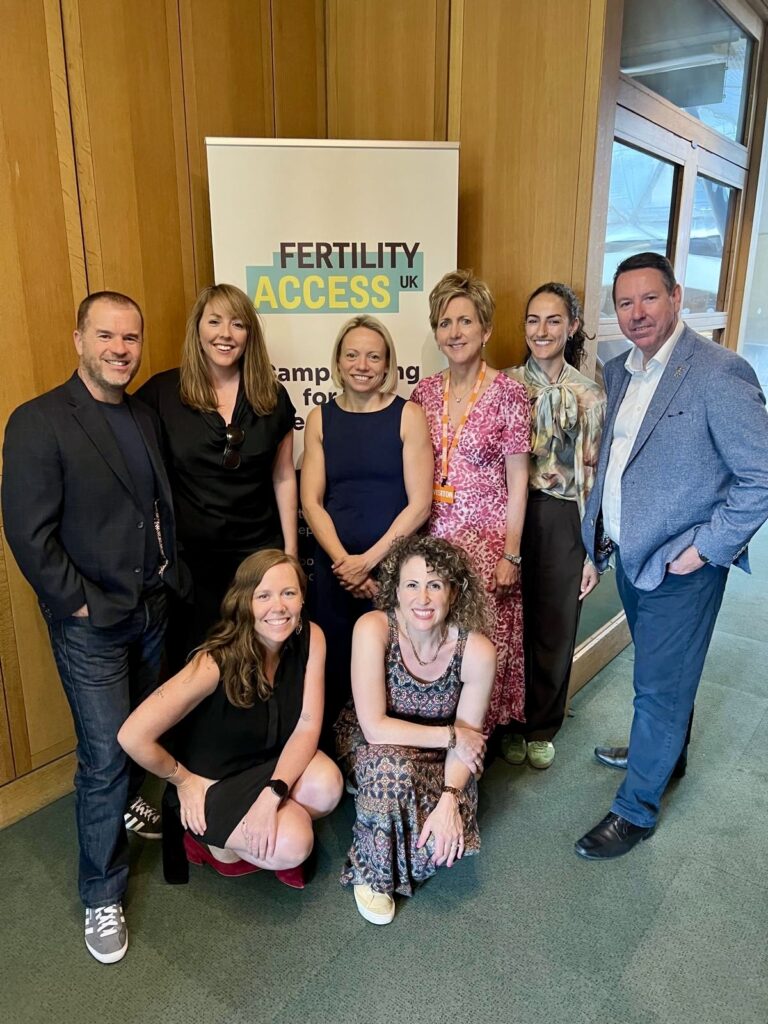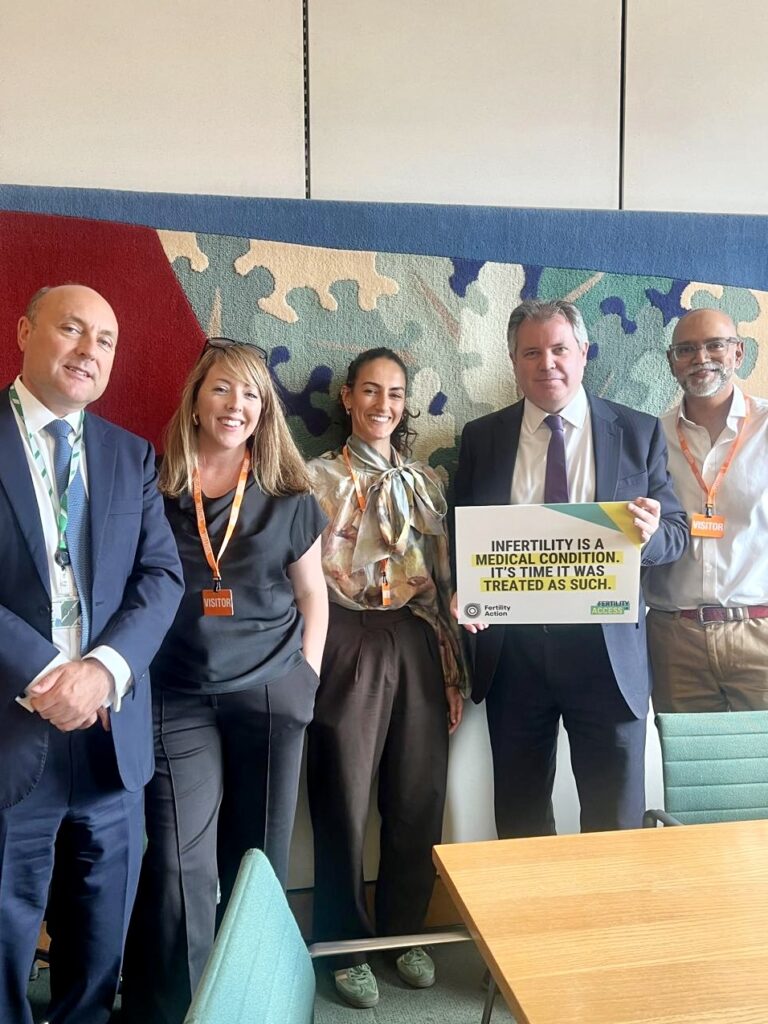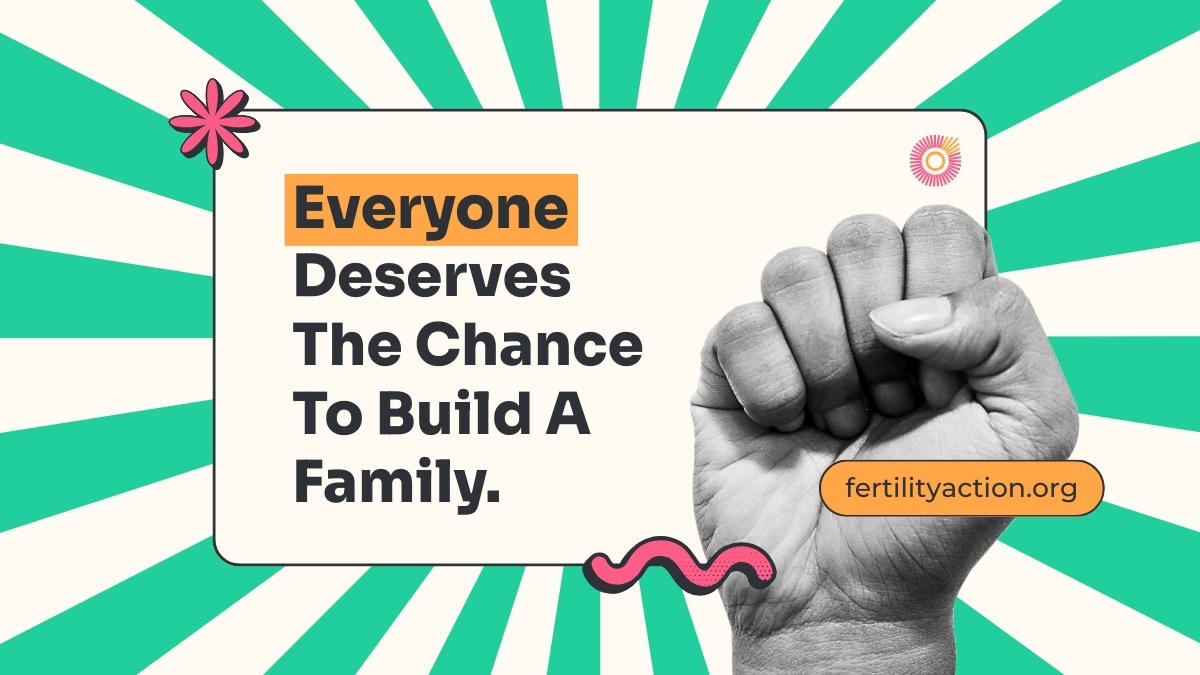London, UK – Katie Rollings, Founder & CEO of Fertility Action, the UK’s new national fertility charity, returned to Parliament yesterday with her team of Trustees and Advocates as part of their ongoing Fertility Access Campaign – launched in January to highlight the growing crisis in access to fertility care across the UK.

Pictured from left: Ian Stones, Katie Rollings, Dr Grace Lee-Brindle, Emma Whitney, Natalie Silverman, Dr Carole Gilling-Smith, Lalana Songra, Michael Close
The meeting in Parliament was hosted by Andrew Griffith MP, who welcomed the Fertility Action team to share updates on the national campaign, present lived experiences, and urge Parliament to take action to address widespread fertility care inequality.
The campaign comes in response to increasing restrictions on NHS-funded IVF and fertility treatment, as Integrated Care Boards (ICBs) continue to withdraw or limit provision across England. Despite NICE guidelines recommending three full cycles of IVF, many ICBs are actively cutting back provision – not increasing it – with mounting evidence of a national pattern of “winding down” fertility services.
Recent cuts in Sussex, where NHS-funded treatment was suddenly reduced from three full cycles to one, have triggered alarm across the fertility sector. Meanwhile, public consultations are currently underway in Greater Manchester and Cheshire & Merseyside, raising fears that more regions may follow suit — and more patients may lose access to treatment altogether.

Pictured from left: Andrew Griffith MP, Katie Rollings, Lalana Songra, Edward Argar MP, Dr Anand Patel
Katie Rollings said:
“We’re witnessing a national health failure. People are being denied medical treatment based on where they live. Fertility is not a lifestyle choice – it is a medical need, and the current postcode lottery is unjust and inhumane. We are calling on the Government to act before more hopeful parents suffer the consequences of a crumbling system.”
Dr Carole Gilling-Smith, Medical Director of the Agora Fertility Group – the largest provider of NHS-funded fertility care in Sussex – said:
“The decision from Integrated Care Boards to cut funding will impact a significant number of people who do not have the financial means to pay for private treatment. Many will be forced to remain childless.
Infertility is a medical condition — not a lifestyle choice — and this policy change is probably the best example of state-funded healthcare discrimination you will ever see. We must stop allowing ICBs to ignore national evidence-based policy in favour of short-term financial decisions that harm patients.”
Alongside calls to restore and standardise fertility care across NHS services, Fertility Action is also campaigning alongside Male Fertility brand “Test Him” for male fertility to be included in the Government’s upcoming Men’s Health Strategy, with the submission deadline having just passed last week.
The campaign has drawn support from leading experts including consultant urologist Professor Jonathan Ramsay and GP and men’s health advocate Dr Anand Patel.
Dr Anand Patel said:
“Male fertility is not just about reproduction — it’s a powerful early warning system for men’s broader health. Low sperm counts are often the first sign of underlying issues like cardiovascular disease, hormone disruption, metabolic dysfunction, or even cancer. We’re ignoring one of the clearest signals we have about male wellbeing, and it’s costing lives.
Since 1973, sperm counts in Western countries have fallen by more than 50%, and if trends continue, we could hit functional infertility by 2040. Yet most GPs aren’t trained to interpret semen analysis, and male infertility is almost entirely absent from the medical curriculum. We must start treating male fertility like the vital health marker it is — not as an afterthought.”
Professor Jonathan Ramsay added:
“In 2023, over 50,000 couples underwent IVF in the UK. If half of these were due to male factors, that’s 25,000 men – not including those undiagnosed, those who have given up, or those excluded due to cost.
I see the clinical and psychological toll of male infertility every day. Men are often told that nothing can be done – except more IVF or donor sperm. For them, it feels like an incurable disease.
The first step is to treat them as patients – not just inadequate sperm providers. We are missing critical opportunities to diagnose and prevent wider health issues.”
Yesterday’s Parliamentary visit included meetings with cross-party MPs and Peers, sharing personal stories from those impacted, and urging political leaders to take action on what the charity calls a national health equity crisis.
For media enquiries, interviews, or further information, please contact:
Email: katie@fertilityaction.org
Instagram: @Fertility.Action



